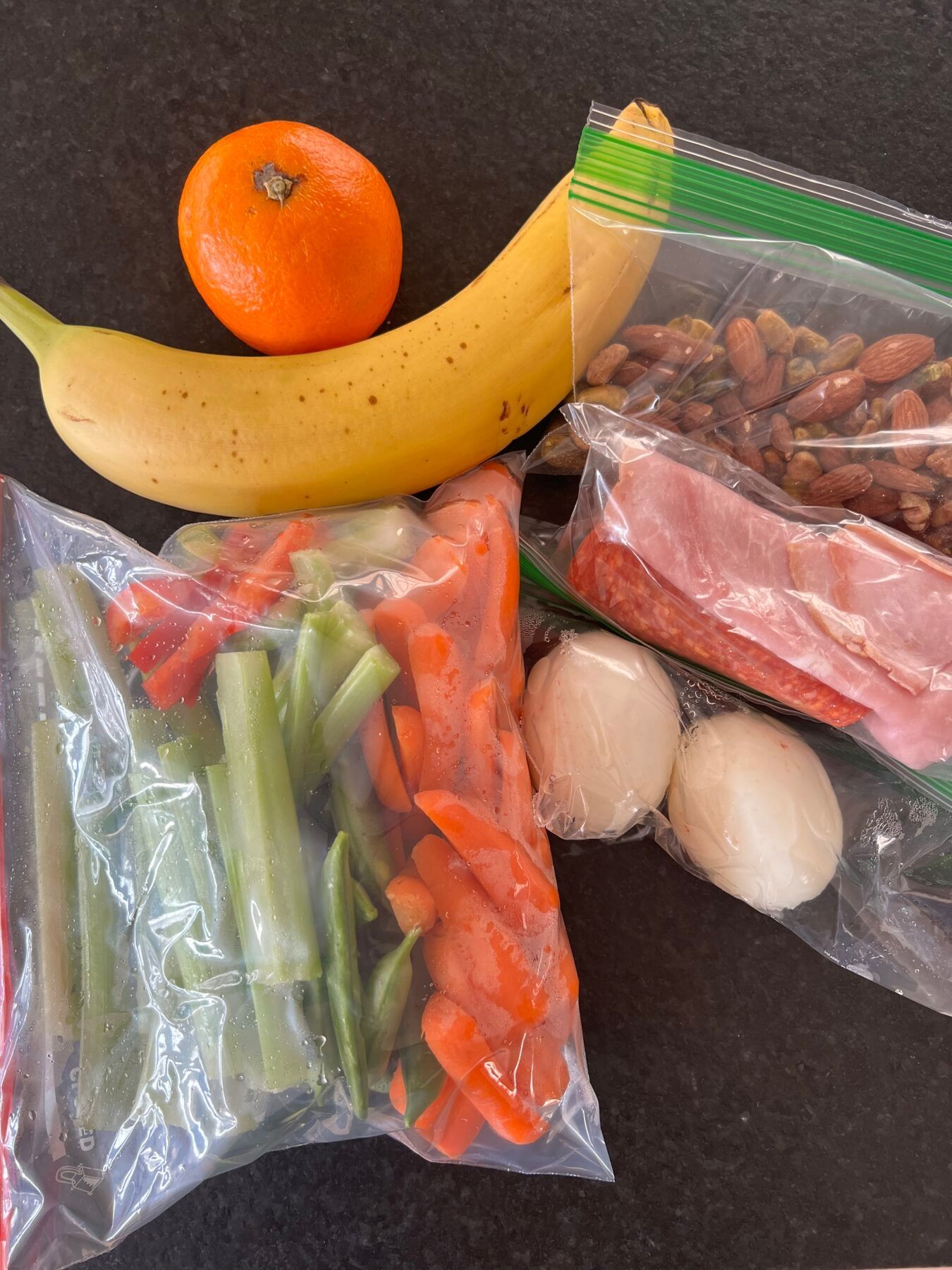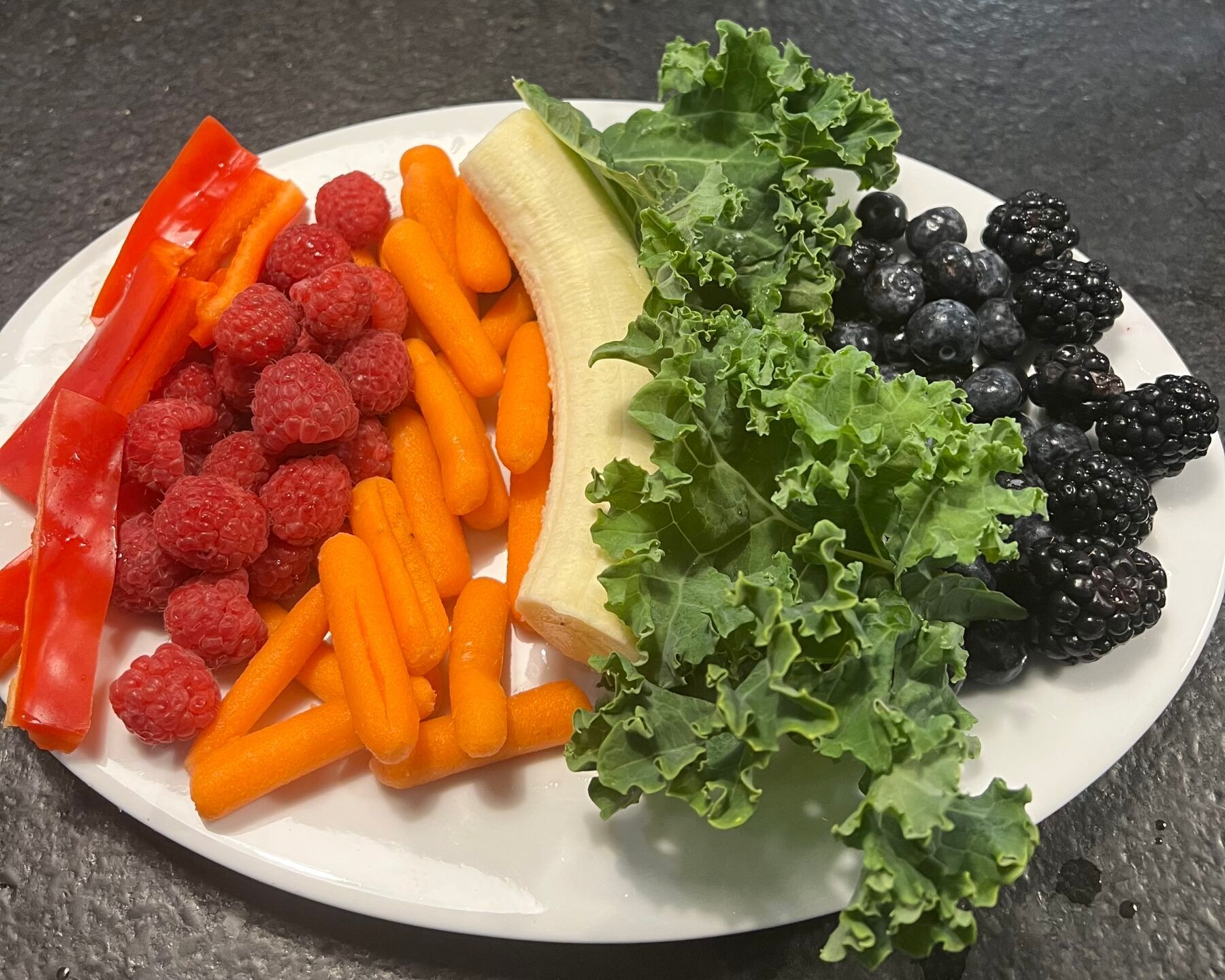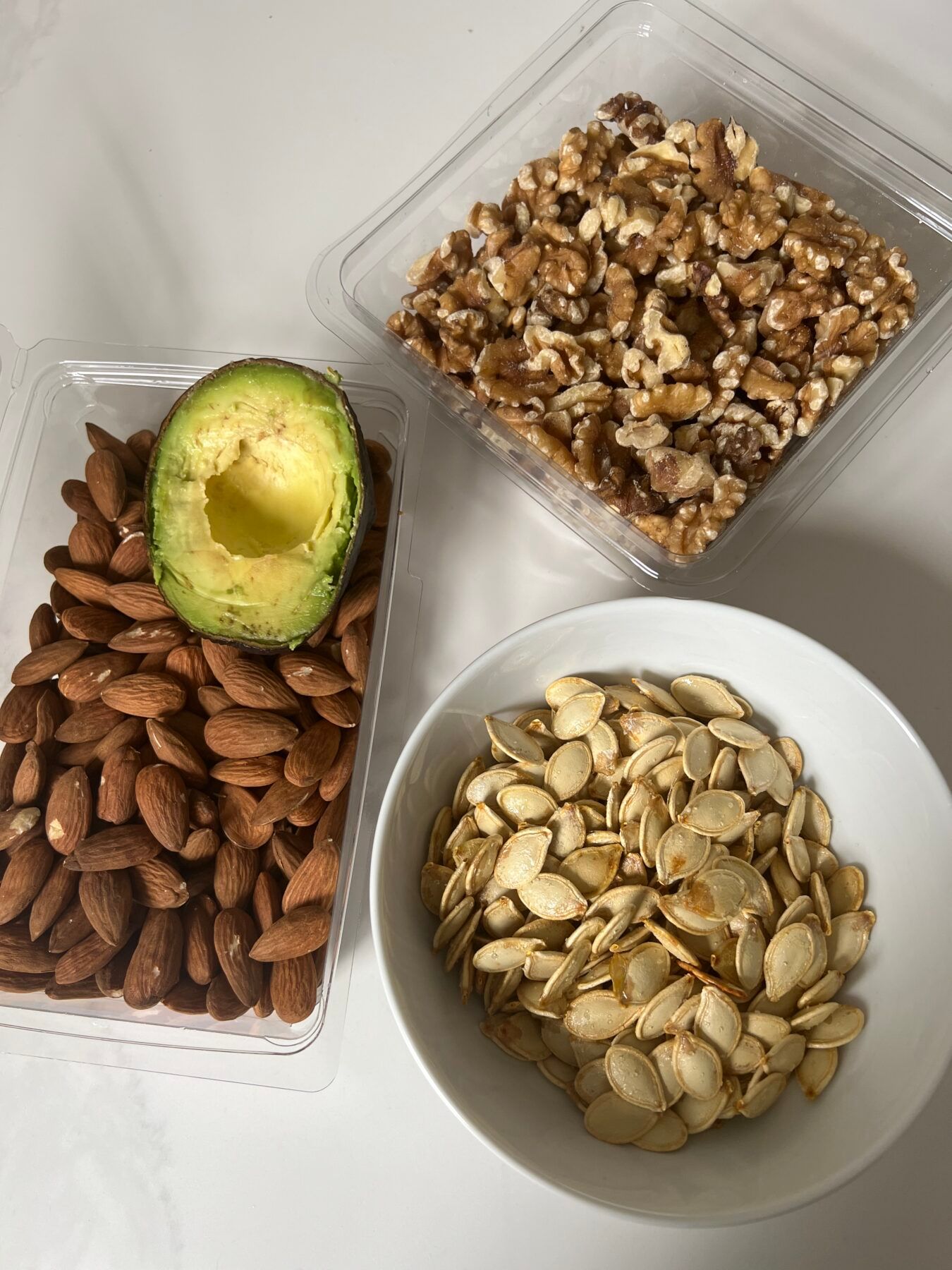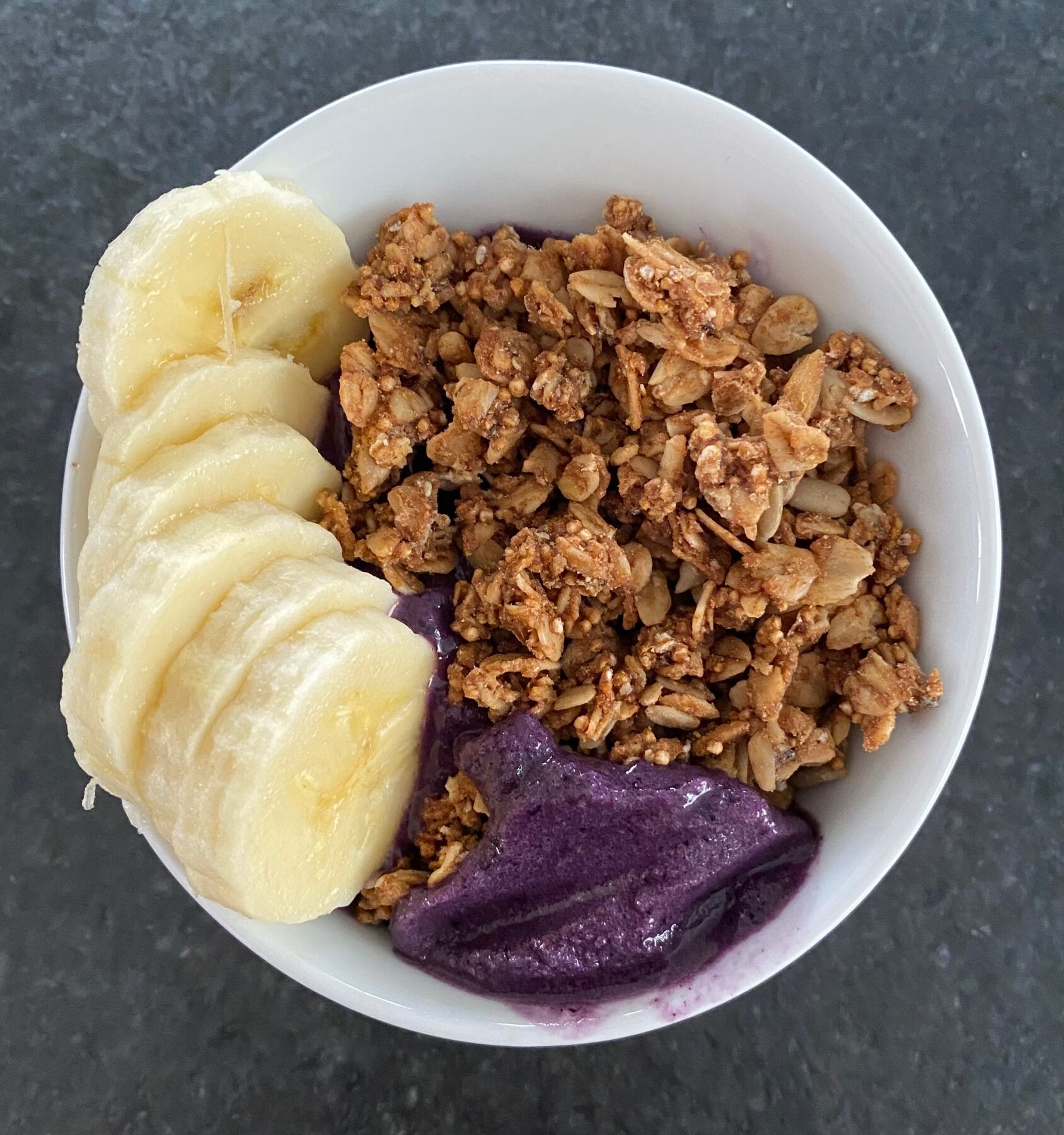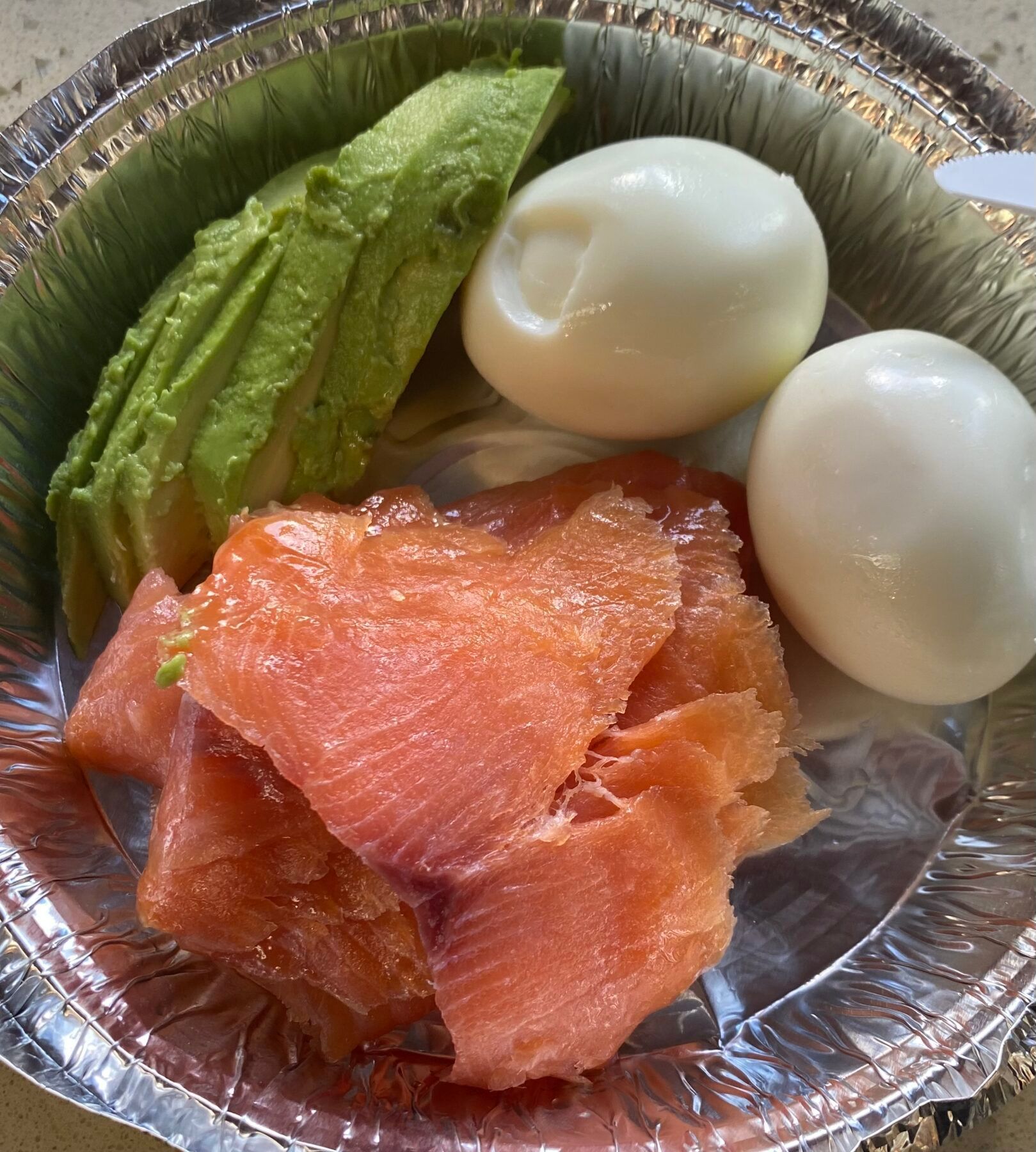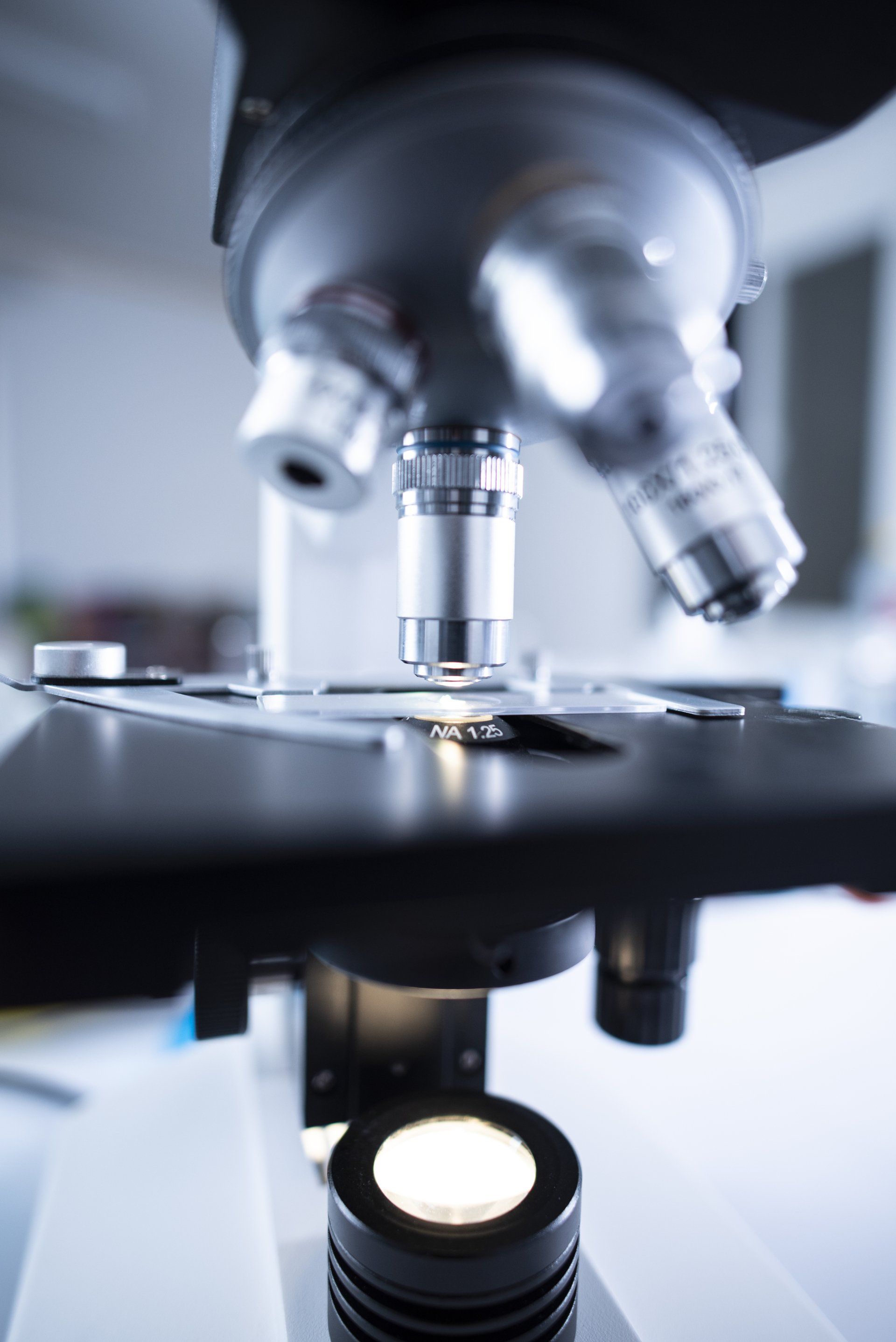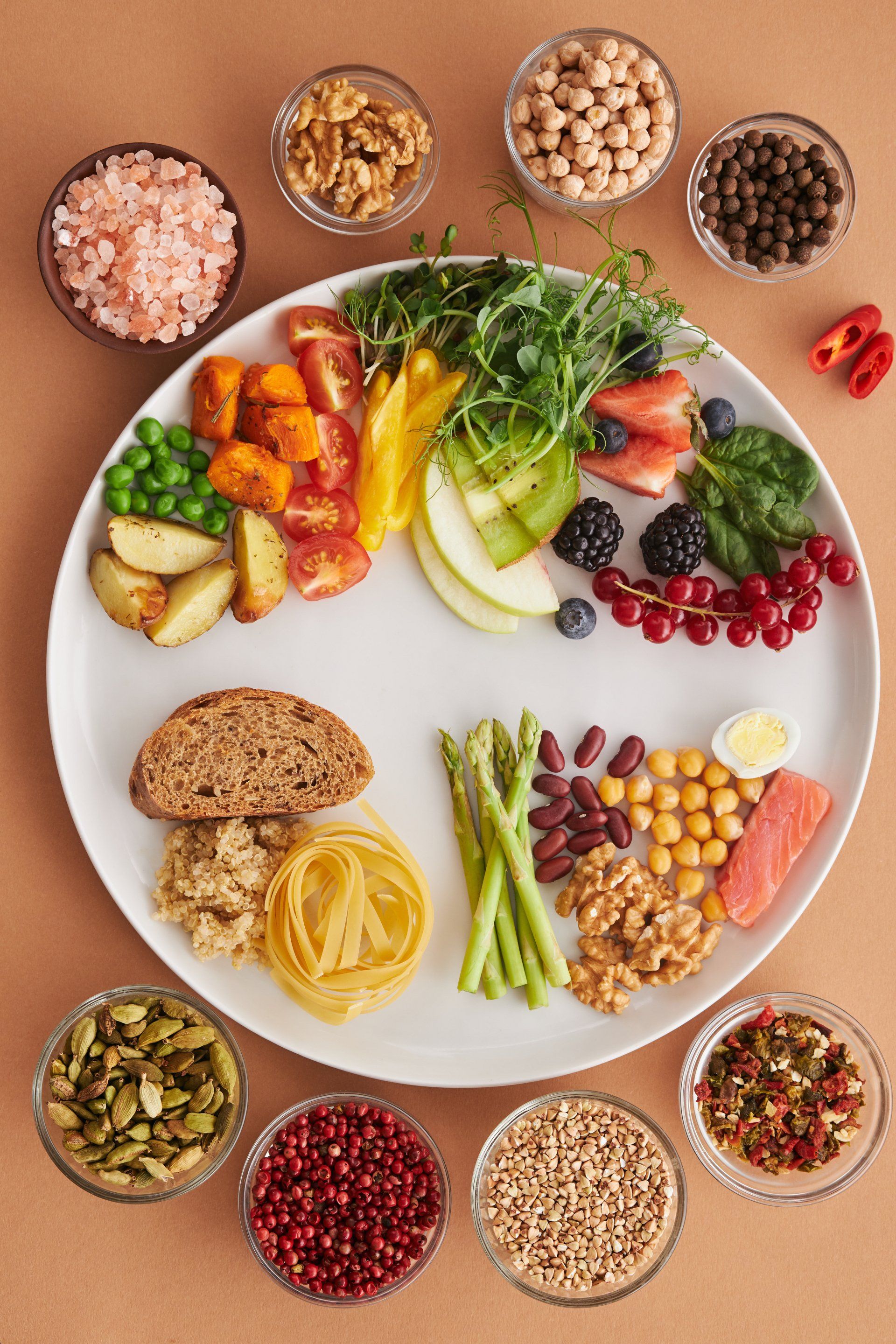Add More Fiber!
When a dog eats something that doesn’t agree with them, their instincts lead them to eat grass to move things through their system quickly. Fiber is the part of the food that goes undigested and does not break down in our stomachs. Even though it goes undigested, it grabs other digested food with it through the digestive process. Fiber is important because it slows the absorption of sugar into the bloodstream from our gut and reduces cholesterol. Both benefits slow down and prevent disease. There are 2 types of fiber – soluble and insoluble.
Soluble fibers attract water forming a gel slowing down digestion and allowing you to feel full longer. Slower digestion helps with blood sugar as well. Soluble fiber can be found in lots of fruits like oranges, apples, pears, berries, oats, beans, psyllium, celery, cucumber, and carrots.
Insoluble fiber does not attract the water and helps to speed up digestion, assisting with constipation. This fiber keeps things moving. Insoluble fiber can be found in whole grains, nuts, seeds, and vegetables. Many seeds, nuts, and vegetables have a good combination of both fibers which make them a great addition to your daily diet.
They average person consumes 8-15 grams of fiber per day, although it is recommended that people get anywhere from 25-40+ grams per day based on sex and weight.
Here’s a typical day of meals with the amount of fiber noted:
Breakfast
Bagel – 3 grams
Cream cheese – 0 grams
Banana – 3 grams
Coffee – o grams
Total = 6 grams
Lunch
Salad with:
2 cups of Romaine lettuce – 2 grams
Cucumber (no skin) – 0 grams
1 cup cherry tomatoes – 2 grams
Onions – 1 gram
Dressing – 0 grams
Slice of cheese pizza – 2 grams
Total = 7 grams
Dinner
4 oz chicken breast (or any meat) – 0 grams
½ cup steamed broccoli – 3 grams
Mashed potatoes – 0 grams
Total = 3 grams
Total fiber for the day = 16 grams
Here’s what a typical day could be:
Breakfast
Oat Cereal with:
½ cup oats – 2 grams
½ cup raspberries – 4 grams
½ cup blueberries – 2 grams
1 Banana – 3 grams
1 oz sunflower seeds – 3 grams
Coffee – 0 grams
Total = 14 grams
Lunch
Salad with:
2 cups of Romaine lettuce – 2 grams
½ avocado – 7 grams
1 cup cherry tomatoes – 2 grams
1 oz pumpkin seeds – 1 gram
Apple (with skin) and peanut butter – 8 grams
Total = 20 grams
Dinner
4 oz chicken breast (or any meat) – 0 grams
½ cup lentils – 8 grams
½ cup quinoa – 3 grams
½ cup steamed broccoli – 3 grams
Total = 14 grams
Total fiber for the day = 48 grams
Some additional foods easily found to gain more fiber:
Beans, 1 cup – 11-15 grams
1 avocado – 14 grams
1 medium sweet potato baked – 4 grams
Pumpkin, ½ cup – 4 grams
Orange – 3 grams
Almonds, 1 ounce – 3 grams
1 tbsp flaxseed meal – 2 grams
So, help your digestive system by adding more fiber*. If your system is not used to high fiber, start slowly as you may find yourself in the bathroom a little more than expected. High fiber diets are known to reduce or prevent disease, especially various cancers, heart disease, and diabetes. Fiber also helps reduce bloating in many people and weight loss. Recent studies also note that high fiber diets result in longer life span. Think like a dog and eat something green today.
*If you have diagnosed digestive issues or take medication, talk to your doctor before changing your diet.
The post Add More Fiber! appeared first on CrossFit Wilmette.
